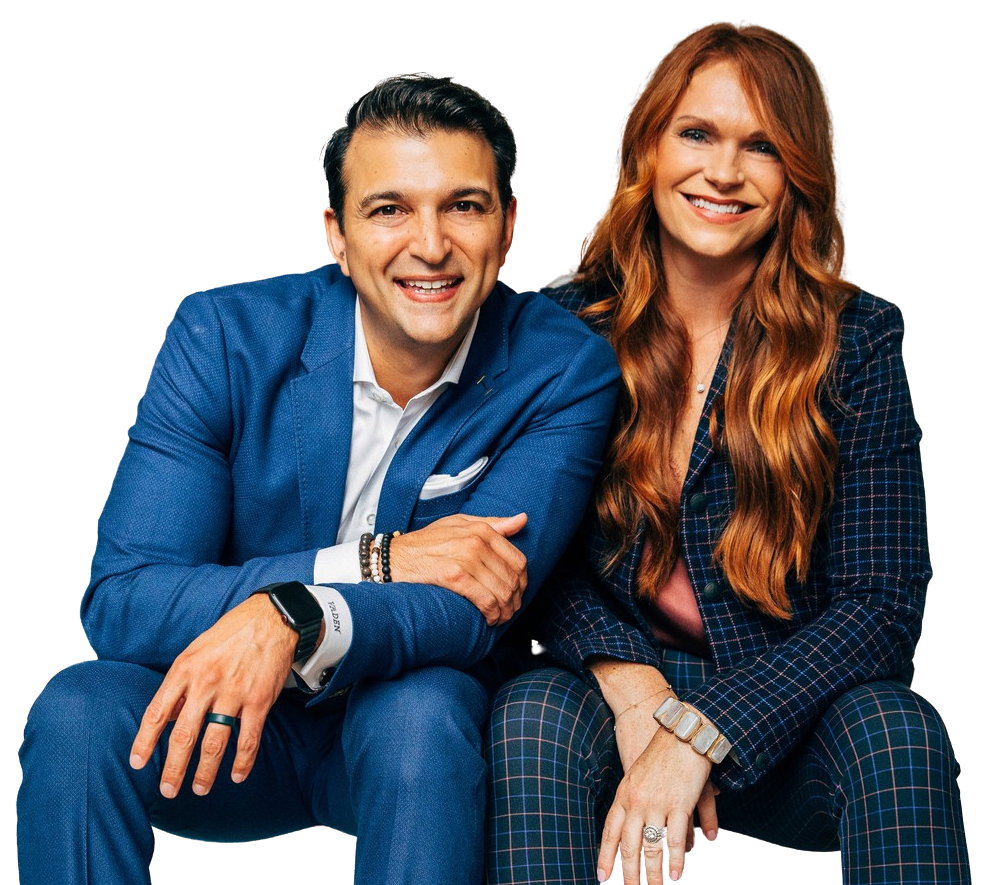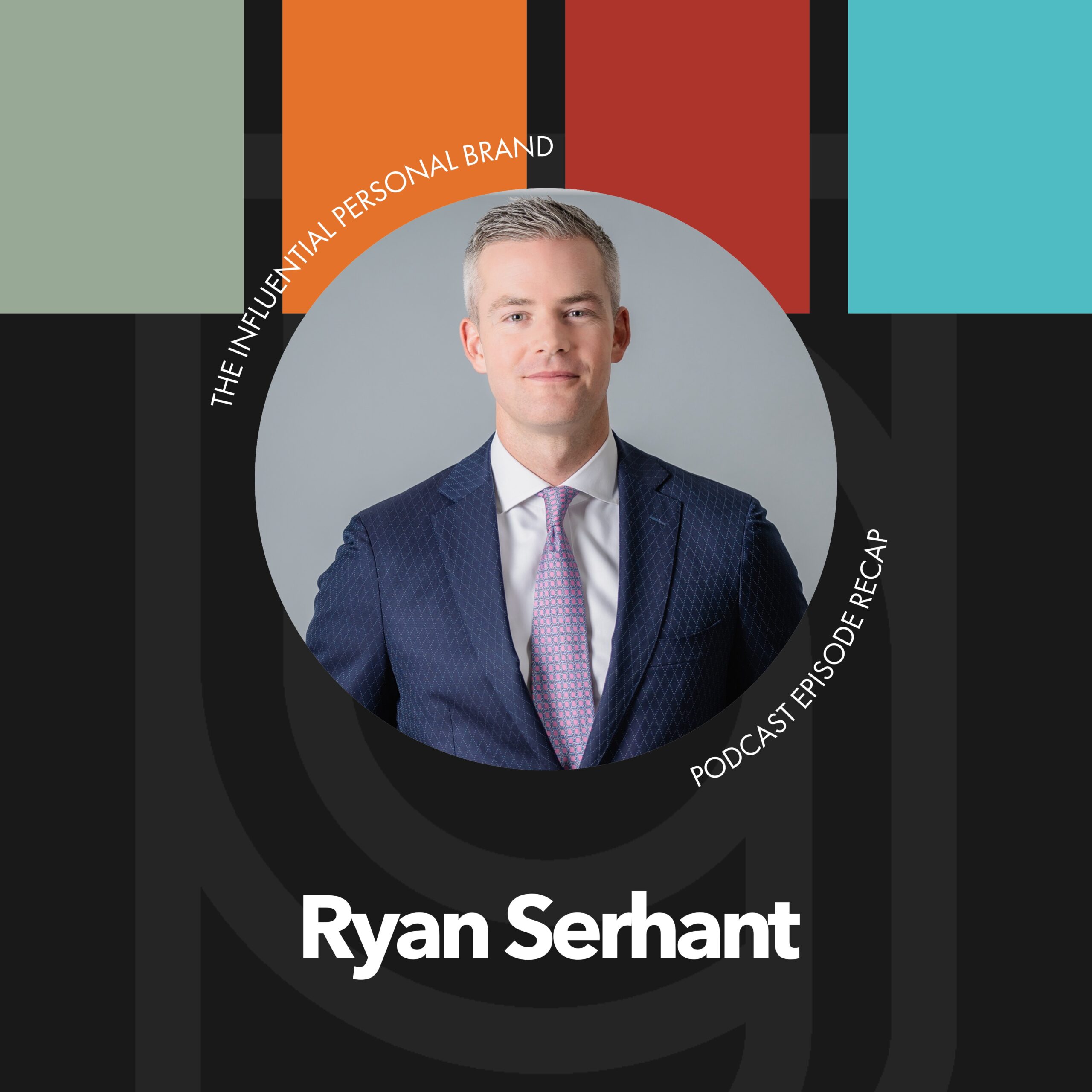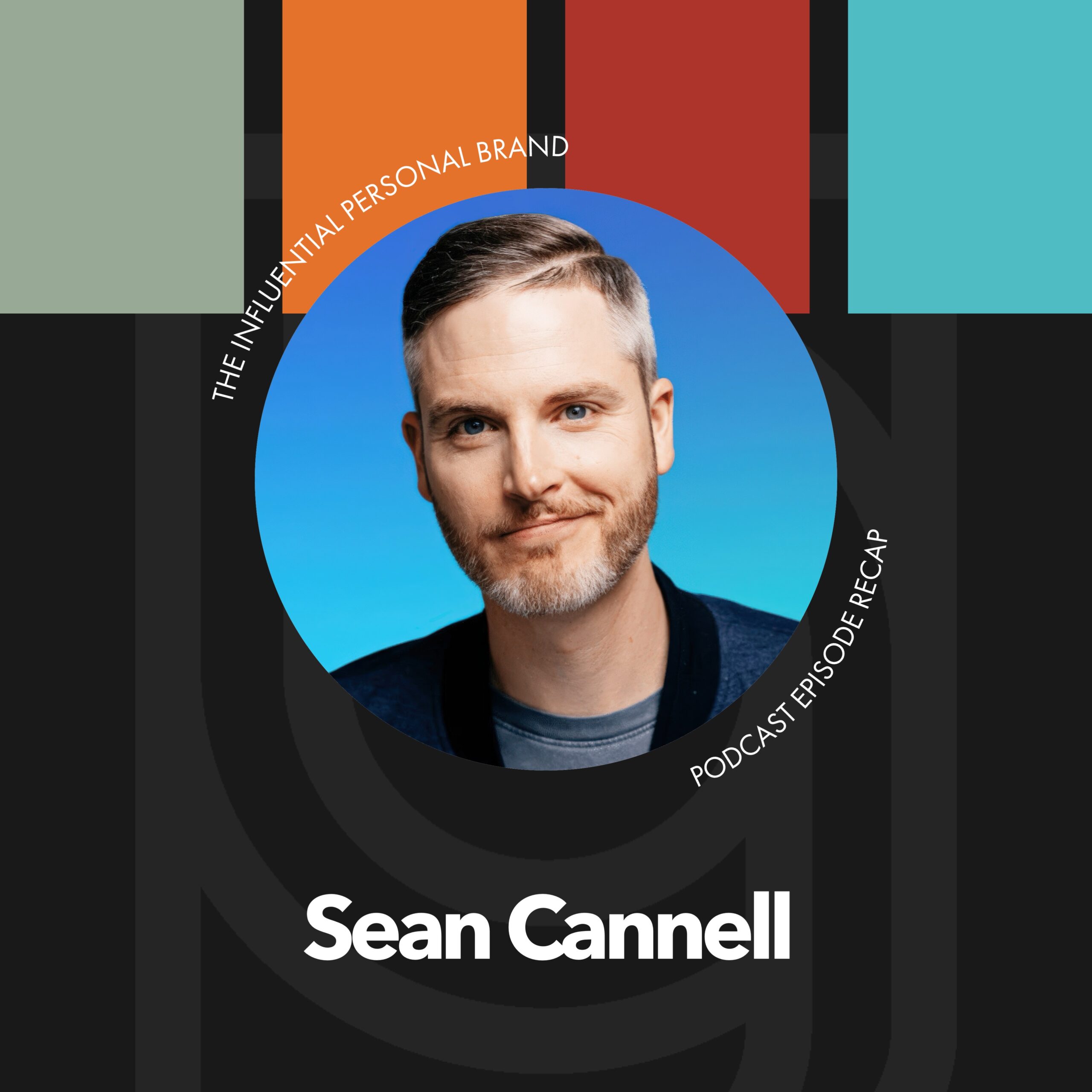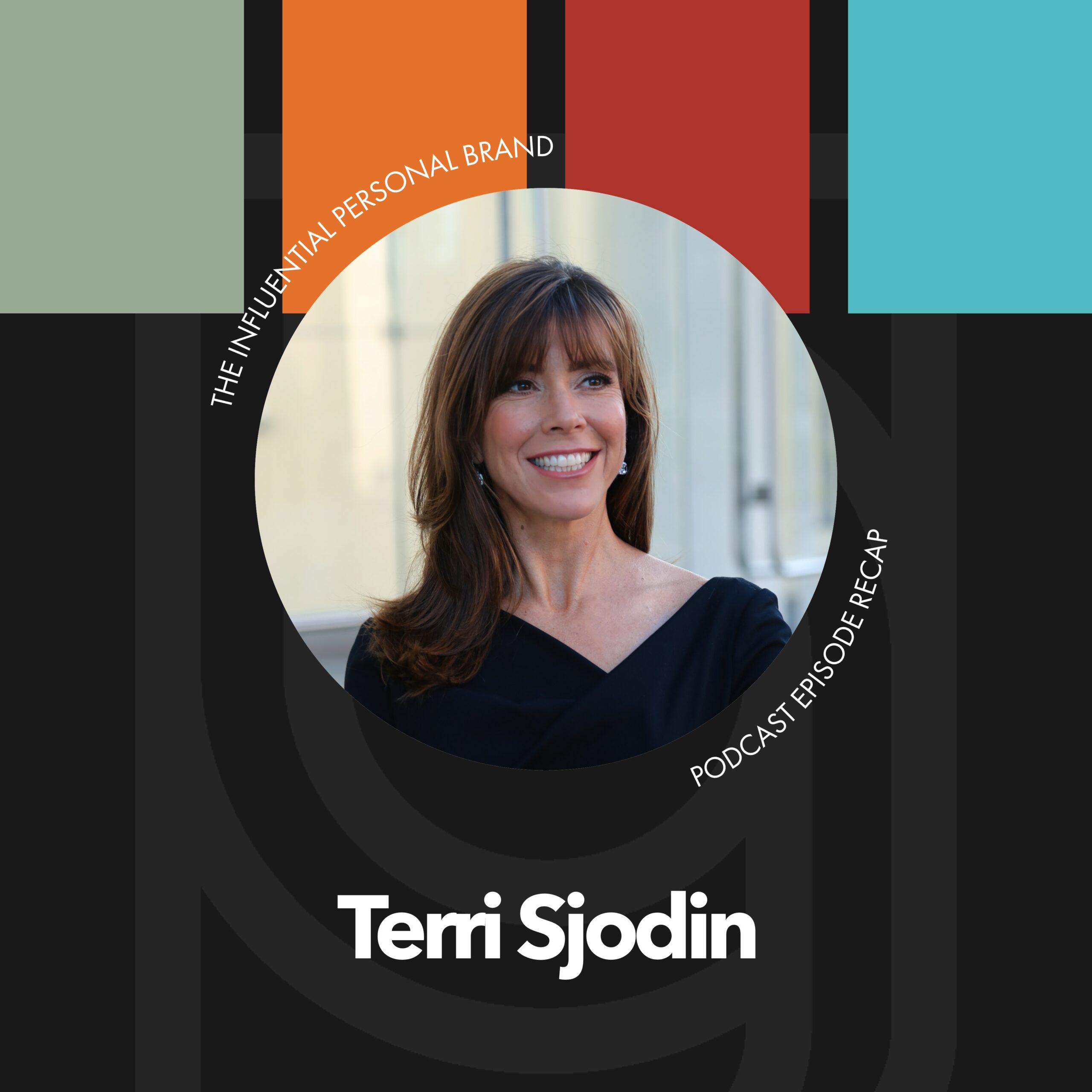RV: (00:00)
Welcome to the special recap edition of the influential personal brand. Such an honor to be breaking down our interview with Donald Miller. And I just have to say up front, like we have learned so much from Donald. We love StoryBrand, we love the SB7 framework. And we love this dude. Like he is such a quality guy and, and just, just frigging smart, smart, smart, smart. So if you haven’t listened to the interview, go listen to the interview, read the StoryBrand book, like do the StoryBrand stuff. They are amazing. And I thought some of the things that he shared on this interview, because we’ve interviewed him before and we know him so well, it was actually quite unique, not things from his book and necessarily and, and not things that I, I had heard him say, you know, so many times.
AJ: (00:46)
Yeah, and I would just say this was actually one of my favorite interviews on all of our episodes so far. And I think the reason why is it wasn’t about his book, it wasn’t about the framework and it wasn’t about the business. It was about his personal brand and his take on what it takes to make it and the benefits and the risks and the pains and the rewards along the process. That’s why I loved it.
RV: (01:11)
Well, and he made a big jump, and you may not all realize the massive shift in personal brand. Not many people at his level make such a dramatic shift,
AJ: (01:21)
Which is funny because I was a Donald Miller follower way before Rory, because I was, I was hooked on blue light jazz, which is an amazing book. Oh my God. Well, it had to be over a decade ago. Well, it had to be before that. It was before we were together, the app out a long time ago. Make me feel so old right now. So yeah, no, I love that. I love this. I love this interview and I’m looking at my notes right now because I actually took a lot of notes and I think this is really amazing. I think the biggest thing, or not the biggest thing, but my first thing I would say is this concept of what does it take to reinvent yourself at that level when you have become so well known for one thing and his case, it was Christian memoirs, how do you go from that to being a branding business strategist,
RV: (02:15)
Millions of copies, millions of copies he had.
AJ: (02:17)
So it’s a big job. That’s a very big jump to go from this very niche Christian market to, no, I’m now I’m a I business branding expert. How do you do that and how does that whole process work? And here’s what I love because I’m not one who likes to ease into things. So I think maybe this resonated with me because this is very much my style. It’s like, Hey, if you’re going to do it, you got to do it. He goes, here’s the thing, and I, this is my paraphrasing of what he said, but this is how I interpreted it anyway. He said, people are going to really, it’s going to take time for people to relearn the new view, right? They’re going to have to reassociate themselves with the new new you. And so why would you confuse them in the process by trying to blend your past in your future for any amount of time? And that just made a lot of sense to me. It’s like, well, yeah, it’s like, in I past I was a sales and leadership consultant. Why would I confuse my audience for months or years? Trying to ease them away from this and into my future, which is a personal branding strategist. Why would I do that? It confuses me. It confuses them. It dilutes the message 100%. That made a lot of sense to me. You’re looking at me like deer in headlights glazed over.
RV: (03:42)
No, I’m just, I’m not, I just, I’m this listening to you.
AJ: (03:46)
And I just thought that’s so true. And it’s actually what we did, not necessarily by choice, but it went from one thing to the next overnight. Yeah. It was very stark. It was very stark. And we’ve seen the benefits of how helpful that was to be still black and white. So stark. So from this to this. There’s nothing in the middle.
RV: (04:06)
And to this day, people call us, Hey, can you come do sales training? Nope. Sorry. Not interested. And we’re really not genuinely not interested
AJ: (04:16)
And it’s actually very liberating to be able to go, that’s not who I am anymore.
RV: (04:21)
That’s a great word. It is. It is liberating. Yeah.
AJ: (04:25)
And the freedom that it like it gives me inside to go, I don’t do that anymore. And I just, the clearness and the clarity of Nope, I’m making a pivot. That’s not what I do and I’m not going to confuse anyone in the process including myself.
RV: (04:42)
So to tie that together with, with one of my top things, which is, is very much connected to that, as he said, be known for one thing and be disciplined to only do that thing. And so what, what clicked for me was we talk about, you know, like a large percentage of the clients that we work with at brand builders group I would say are, are novice to intermediate. They’re kind of earlier in their journey and we take them through phase one, which is brand identification, but we’re getting, we get all these calls from like pretty well known celebrity type influencers that have been in the industry a long time because they’re not really in phase one. They’re, they’re really in, you know, we have four phases. They’re really in phase five they’re circling back around, they’re in reinvention and they’re having to get clear on what is my one thing for the next chapter.
RV: (05:30)
Like I’ve been this one thing and now I’m not. I know I’m not that thing anymore. I need help getting clear on what my, my next one thing is going to be. And it’s, it’s funny to see, like you can tell from the people who are more intermediate in their journey. You go, wow, this person really has a chance to succeed because they’re disciplined about sticking to one thing. And then the experienced people, you go, wow, they’re going to break through to even bigger level because they’re still, they’re still committed to that process of just, I am going to be known for this and I’m going to make sure that I shaped the world’s perception of, of, of me in this way. So that was a big one. That was a big one for me, which also tied to something that I know you want to talk about with the
AJ: (06:20)
Oh yeah, yeah. This was God. Can you believe it was four years crazy? Same election year. Oh Lord. Watch out. So yeah, so I thought this was really interesting and a lot of the concept was it’s not, it’s not that the best message wins always and it’s really not. Sometimes it’s the easiest message, the clearest message. But I loved the way he said it. It’s, it’s the message that’s easiest to memorize. And I was like, yeah. And here’s the analogy, and it doesn’t matter if your left, your right blue, red, whatever. The point is, there’s a really great analogy if you look back at the last election, really in the primaries before election Republican thing. But what was the message of Jeb Bush?
RV: (07:12)
I have no idea. I have no idea. And you know, and this is the United States election. We’re talking about the primaries from 2016 in the U S
AJ: (07:21)
Yeah. So, but what was Donald Trump’s campaign? Again? Nobody can deny that. They don’t know what that is. It’s great to get that thing. And I think that’s, it’s not that it was the best per se, but it was the clearest, it was the easiest to memorize, but more importantly, it was the one that you heard over and over and over and over and over and over and over. It was the one that was the most repeated. He had it on hats. He had it on tee shirts, he had it on bumper stickers. He had it all over Twitter. Of course, you know that he had it all over his messaging. It was everywhere. And that is what we have to do and is like, it doesn’t matter how good it is if no one hears it. And part of that is your job to share it. And that kind of ties in with a little bit of what I kind of, I’ve really picked up and it’s a little bit of a nuance here. And he said that he works with a ton of artists and one of the [inaudible]
RV: (08:18)
Hold on, hold on, hold on. Say that one. Cause you’re going to go into the promotion was
AJ: (08:21)
No, Oh no, I’m tagging this in. I know what I’m gonna say. And I thought this was really good because as he’s talking about, you’ve got to have the clearest message, the one that’s easiest to memorize, but you also gotta be the one who’s willing to repeat it the most. And he said, and there’s a real challenge with that with a lot of people in our space and to, what I was gonna say with artists is that he works with a lot of artists. And he said, and you know it’s not the most talented that always gets to be the most famous either. That’s not always what happens. He said the ones that are willing to work and hustle and promote and brand and get themselves out there and do it over and over and over again. As soon as he was talking, I was like, that’s bright. Kissell that’s one of my clients and his interview is in the influential personal brand summit. Yeah, dude. That dude was hustling from age 16 on, he was a salesman. He was selling his music and he said the real challenge though with a lot of artists types, this also could be entrepreneurs who are waiting around on investors or whatever. This is me. I struggle with what you’re about to say. You know what I’m going to say? Talked about it before because you never put someone on the air.
AJ: (09:32)
Sardine. Yes, but now he said it’s like, here’s the thing, there’s a real arrogance to people who are not willing to promote themselves and does that and it’s, it’s counterculture. Cause really you think, Oh, the people who are promoting themselves are all self-promotional and it’s me, me, me. And he said, no, there’s an equal amount of arrogance to the person who goes, you know what? I’m so good. I deserve to be found. My business idea is so good. I deserve that investment money. You know, I’m so talented, I shouldn’t have to work this hard. I should have somebody catering to me. I should have some body getting my stuff out there. I’ve got the talent.
RV: (10:09)
Yeah. It’s a form of indulgence and arrogance. People should find me and I don’t want to do the work of promoting.
AJ: (10:16)
Yeah. And I thought, let me know. And again, regardless of your political affiliation, I loved his, his kind of tying that into this you know, Jeb Bush, Trump thing. He goes, man, Trump was hustling and we all remember the message regardless of how you feel about the outcome. We all were member the message. And I just thought that was really good. In terms of are you willing to promote yourself? Are you willing to share your message and do it again? And again, and again, I loved it. I thought it was really solid.
RV: (10:46)
Yeah. I had never heard Donald say so directly as he did in the interview that that branding and marketing is an exercise in memorization. Like I, you know, I’ve heard him talk about clarity and being clear. I’ve, I’ve heard him talk about how to find, you know, like the way to tell your story of course, but just saying it’s really an exercise in saying the same thing over and over and over and over again. It’s not just clarity, it’s repetitiveness, it’s memorization. So that really hit me hard. It also is when we teach about titles, we have this thing called the five title tests and we talk about why most titles are terrible. And some of the mistakes that we’ve made around titles, one of the title tests is called the memorability test. And that half the battle is just being remembered. And if you look at take the stairs to take the stairs book, that book fails four of our five title tests, but it is a 1000% on the memorability test because people remember take the stairs, they see the escalator in the stairs and just they remembered it.
RV: (11:54)
And so that has always been such a mainstay part of you know, my personal brand journey. And that was just by dumb luck. But yeah, so I think memorization, that was a huge, huge takeaway for me is as well. My third takeaway, I’m just going to jump to it and then I’ll let you do yours, is they, he said this, he said, if your goal is to help someone make money, you will never have to worry about job security. What a great truth as so simple and profound that if you are just trying to help people make money, then you’re, you’ll never have to worry about a job. Like if you get good at helping other people succeed. And this it really, I think part of why it hit me as I’ve been working on our our workbook for our, we have phase three, we have our phase three event is called high traffic strategies and, and one of the, it’s like a lot of the more advanced strategy traffic strategies and one of them is affiliate marketing.
RV: (12:55)
And there’s this part in the phase three workbook where I say, look, you know that you’re doing affiliate marketing, right? When you wake up and you’re consumed with, how do I make my affiliates a whole bunch of massive passive mailbox money? I want it to be massive passive mailbox money. When you’re have that mindset, you’re going to attract a lot of affiliates and you’re going to make them a lot of money. And guess what happens is a byproduct. Like you’re probably gonna make some money out of that too. So if your affiliates are making money, you’re making, you’re making money, right? But it’s kind of like, how can I make this easy for them? How can I make this a no brainer for them and for their audience? Like what actually moves the needle and could make them real money. And when you lend yourself in a direction like that, not just with affiliate marketing mode, anything, right?
RV: (13:46)
You could be just an employee, an employee. I don’t, I don’t mean to say just an employee. I mean, you could be an employee, you could be a business owner, you could be a personal brand, you could be a corporate executive. You, you can be anybody in the world seeking to add value to anybody else. That’s a great life. And you’re gonna, you’re gonna make money. That’s the point. And I, I just, I love that. I’d never heard him say that again so clearly. Yeah. And there’s no just in front of anything. Yeah. I didn’t mean I’ve learned that hard lesson because I write with just, and almost every sentence, like just a minute or justice. I’m like, somebody wants to tell me there’s never a, just before anything. It is what it is. Thank you for calling me out and for making me feel completely inadequate in front of everybody. I know this is going to be as long as the interview I recap is a third one I really love. He said, and I think this is really relevant, what I’m going to bring this back. I said it’s so many of our clients and brand builders group are in that stage of making a pivot, right?
AJ: (14:52)
They were this and now they’re wanting to do this and it doesn’t matter if they’re going like so many of our people have these huge online social followings and they’ve been this huge digital influencer, but now it’s like they want to take that and they actually want to do something and make a more solidified message and write a book or be a speaker or create a product or they want to solidify all this stuff they’ve been saying into one unified message. And it goes from that or it goes from the person who just exited their business or just exited a job and now they want to work on this next phase of their life. Or we have actually a ton of people who have been a full time mommy’s, which is a full time job. So five jobs, like I used to say, say, Oh mom.
AJ: (15:33)
I’m like, no. Like what? What? Yeah, you’re at home, but you’re not studying there. You’re, you’re on the, I’m exhausted the days I’m home with my kids anyways, but they go from like, they’ve been a full time mom and he’s two now. They’re doing a side hustle. And it’s like, how do I make this pivot? And I just, I love this. He said, anytime you make a pivot, any, any process of reinvention is going to come with a fair share of haters. And it’s just to be expected. And he said, but you will lose some, but you will gain more. I said, you will lose some in this pivot. People are going to be mad that you’re doing this. They’re going to hate on you for doing this because they haven’t, or they can’t, or they think they can’t. He said, you’re gonna have some haters.
AJ: (16:19)
And he gave this really unique example that was really personal as something that happened online with him here recently when he left this, you know, Christian focused wife see this business strategy life. And and he, he gave this biblical reference of, you know, as we all know, Jesus, you know, one of the parables in the Bible is the story of turning the other cheek. And there was something in the way that he said that, that just immediately I made me remember the sermon at church. Here in Nashville. We go to cross point major props to Kevin queen. He did this amazing sermon series. Maybe it was last year, I don’t remember, but I remember the message and actually, no, it wasn’t. It was no, it was Chris Nichols. It was Chris Nichols cause it was a Martin Luther King holiday. So the whole point of this is he’s a, people get this whole parable of turn the other cheek, very confused in the Bible. He said, because back in Jewish times and in a way for you to turn your cheek this way, and I may get the directions mixed up, not my strong suit, but you would have to have smacked somebody with the left hand
RV: (17:42)
If somebody was going to smack you in those times. They would have backhanded you so they would, they would have hit you up from your right to left. But anyways, turn the other cheek meant punch me directly. No,
AJ: (17:55)
There was a whole nother connotation to that. And how I remember it, he said there was one thing because in order to do that is that you wouldn’t have been able to like do like this. You would have had to do it like this. He said an if to go with your left hand. He said that was a hand in which everyone wiped with because I didn’t have toilet paper back then and he said there was a, there was a sign of like just the absolute disgrace and nobody would have done that. And he said, so to turn the other cheek says, no, you’re going to have to use your other hand and you’re going to have to treat me with the equal respect that I deserve. And he said there was a connotation in the, not just the direction but the actual hand that you were using and this idea of turning the other cheek. It isn’t a fight back, but it also isn’t a cower down and just be belittled. It’s not that you just stay in there and take it and you don’t stand up for yourself, but you do it in a way that has kindness. You do it in a way that says, I’m not going to stand for this, but I’m also not going to attack you back.
RV: (18:52)
No, it was different. It was an act of defiance. It wasn’t an act of acquiescing. It’s not retaliating, but it’s saying, if you’re going to hit me, hit me like a man. Like I’m not beneath you. If you’re gonna hit me, you’re gonna hit me like you’re eating.
AJ: (19:06)
That’s right. And I thought that was really good because the way that he shared their response on social media just immediately made me think about that. He said, it’s not that you don’t respond, it’s just you don’t respond with the equal intensity and hatred in what you’re receiving. And he said, no, at some point, feel free to take it down. He said, but it’s not that you just let the haters go and you don’t, you don’t argue it. And he said, you’ll just let it go and ignore it. And he said, Ben, at the same time, you don’t have to do it with the intensity and hatred that’s out there. He said, because it’s just part of life. You’re going to have haters. People aren’t gonna like you. They’re not going to like what you do and what you have to say. And if you work this and you’re going do this, people are going to not like that.
AJ: (19:47)
Or they’re going to be jealous or confused or whatever they are. And that’s just part of it. But those people will fall off and you will gain more. You will take who the key part of who you had and you will add on to it. So don’t be afraid to make that pivot. Don’t be afraid to make the change and don’t, don’t be afraid of the haters. Just stand your ground and be rooted in your message. Which is why something that we promote at brand builders all the time is it’s like you have to have a message that you are willing to go to the grave with and that no one can tarnish that message because of what they think. It’s your truth. It has to be your truth. And if it is, then let the haters come. Yup.
RV: (20:30)
Standard ground be or be clear, be direct, be disciplined repeated often. Just powerful, powerful stuff on, on like the way of being, of being a, of a, of a big, a big personal brand. So thank you for that Donald Miller. Totally inspired us and hopefully inspired all of you. Thank you for being here. We’ll catch you next time on the influential personal brand podcast.














